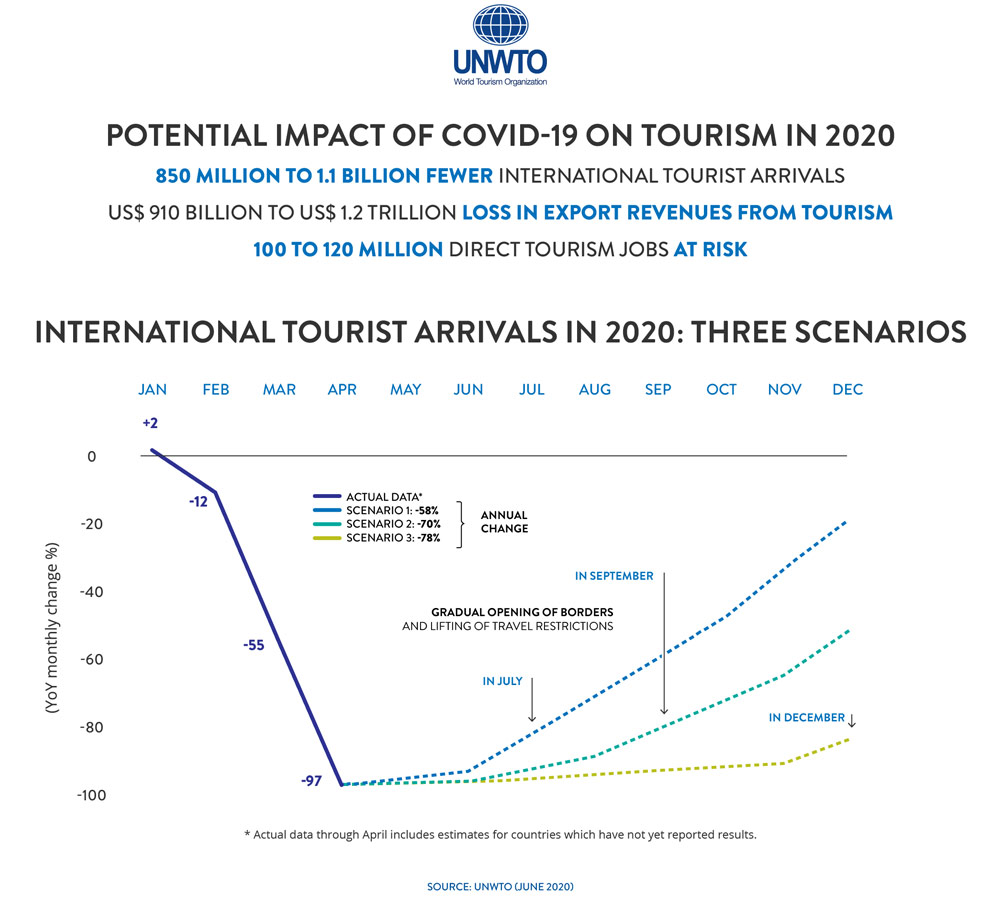As Tourism Restarts, Our Responsibilities Remain
Four months ago, UNWTO asked its Members, the tourism sector and tourists themselves for patience. To stay at home for today so we could travel again tomorrow.
Tomorrow is now here.
The restart of tourism means the return of hope and opportunity for many millions of people around the world.
This week, Europe leads the way in restarting tourism. Destinations throughout the Schengen Zone are once again open. The lifting of borders will have an immediate and significant impact on economies and livelihoods.
For Spain, host country of UNWTO, and neighbours Portugal, the occasion will be marked by a special ceremony. The presence of His Majesty King Felipe VI and President Pedro Sánchez of Spain alongside President Marcelo Rebelo de Sousa and Prime Minister Antonio Costa of Portugal is testament to the significance of tourism’s restart for both countries.
So too is the practical support that tourism has received, including from the very highest political level. The European Commission has provided an unprecedented degree of economic support for the sector. And at the national level, has France has echoed our call to back tourism with actions and not just words, giving the sector and the businesses that make it the economic help they need to survive and lead recovery.
To reflect this, UNWTO is changing gears in how we support our Member States and tourism at large.
This week I resume person-to-person official meetings as I lead a delegation on an official visit to Italy and to the Vatican City.
This is an opportunity to show our support for tourism and for a country that is not only a true global tourism leader, but which was one of the worst-affected by the COVID-19 pandemic in all of Europe.
Our visit to Italy will allow us to learn more about important steps being taken to make tourism more sustainable, more resilient and more innovative. It also offers an opportunity to celebrate what makes tourism: people.
This will be the first of a series of visits as the world steadily opens up again, allowing us to lead by example in supporting tourism and making our sector a vital tool for recovery.
At the same time, it is only right that we remain cautious. This crisis is far from over. In other regions of the world, borders remain closed to tourism and the COVID-19 pandemic continues to spread. The human toll, economic cost and social impact are still growing. This is no time for complacency.
And even where the worst appears to have passed, the threat of the pandemic returning means we must act responsibly and make public health our priority.
During these difficult months, tourism has stepped up to meet this unprecedented challenge with determination and an unparalleled spirit of solidarity. We carry this into the next stage.
Tourism’s restart is a step towards ending many weeks of uncertainty and replace it with a renewed sense of confidence. As we meet in person again, we can build trust, the essential foundation as we work together to grow back stronger and better. But this will only work out, if we act with responsibility – it’s better to be right, than to be first.
Zurab Pololikashvili,
UNWTO Secretary-General











